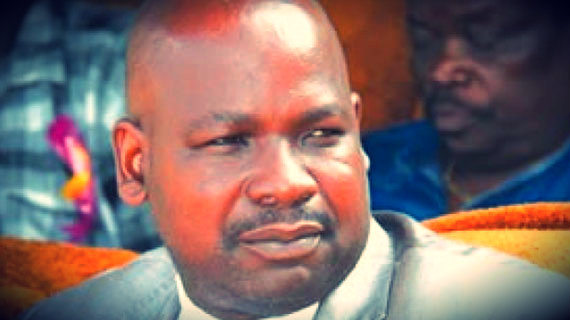
ATTORNEY-GENERAL (AG) Johaness Tomana is allegedly operating in breach of the Constitution by doubling up as Prosecutor General (PG) and the government legal advisor.
RICHARD MUPONDE SENIOR COURT REPORTER
The current Constitution, which came into effect when President Robert Mugabe signed it into law before the general elections, created the National Prosecuting Authority (NPA) headed by the PG.
According to the Constitution, the PG is appointed by the President on the advice of the Judicial Service Commission.
The PG must be a person qualified for appointment like judges of the Supreme Court and will serve for a maximum of two six-year terms.
The AG remains purely a government adviser without any involvement in prosecution.
But Tomana is reportedly juggling both roles of prosecuting and advising the government at the same time — a situation legal experts said is unconstitutional.
Prominent Bulawayo lawyer Kucaca Phulu said as things stood, Tomana was operating illegally.
- Chamisa under fire over US$120K donation
- Mavhunga puts DeMbare into Chibuku quarterfinals
- Pension funds bet on Cabora Bassa oilfields
- Councils defy govt fire tender directive
Keep Reading
“In my opinion it’s unconstitutional (because) once a provision of the Constitution is put in place, it becomes operational,” Phulu said.
“As it is, from the day the president was sworn in, the NPA became operational. It doesn’t matter whether there is an Act of Parliament or not, that will not take away the substantive right.
“The Act of Parliament will only operationalise the NPA, so substantively it’s illegal for Tomana to prosecute.”
Another lawyer Matsobane Ncube said Tomana should not be performing both functions and if the reports are true, it was not tenable at law. “He should leave the job of being the government advisor and concentrate on prosecuting only.
“But if he is doing both functions, then that is not tenable at law,” Ncube said.
Human rights and media lawyer Chris Mhike said Zimbabwe was yet to put in place relevant legislation, administrative measures, and the requisite governmental infrastructure that would make the legal system fully compliant with the Constitution.
Mhike said dozens of statutes were still misaligned with the basic law and numerous other Acts of Parliament that ought to be promulgated in terms of the Constitution were not on the statute book.
“Indeed the NPA is one of the important institutions that are adversely affected by the said prevailing legislative and administrative deficiencies,” Mhike said.
“The absence of a substantive PG, beside compromising Zimbabwe’s rule of law status, obviously impedes the efficient performance and general well-being of the NPA.
“Another grave consequence of our present failure to abide by the dictates of the Constitution is the decline in standards and integrity of Zimbabwe’s justice delivery system, all to the prejudice of ordinary citizens who deserve a lot better than service currently in place.
“These present shortcomings render our constitutional order into something of a half-baked cake; or rather, a pseudo-constitutional democracy, a scenario that is certainly not good enough.”
The Constitution states that soon after the president is sworn-in, the responsibility for prosecuting criminal cases on behalf of the State is transferred from the AG to the PG.
Chapter 6 Clause 5:27 of the Constitution states that the president should appoint an AG who will be a principal legal adviser to the government and represent the government in civil and constitutional proceedings.
However, the President has still not appointed a PG since his inauguration on August 22.
Tomana is widely tipped to be the PG while former Zanu PF Copac co-chairperson and lawyer Munyaradzi Paul Mangwana is likely to become the new AG.










